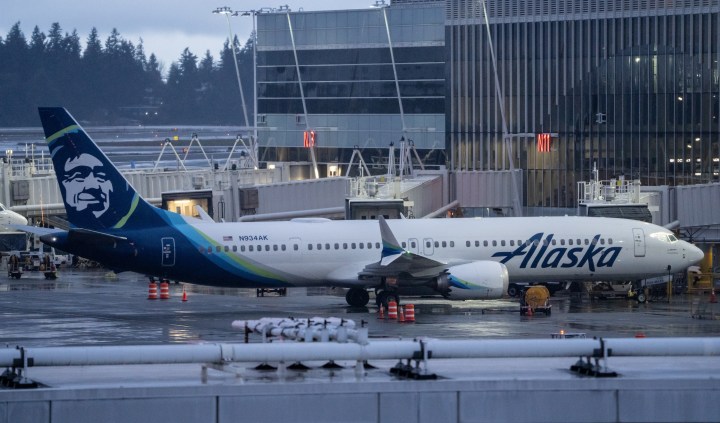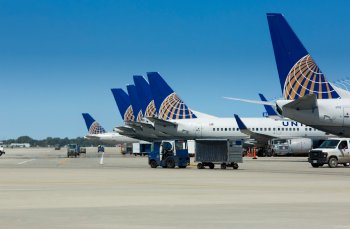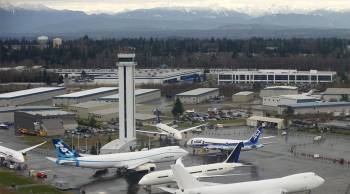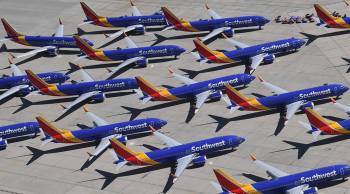
What passengers need to know about the Boeing Max 9 safety issues
Share Now on:
What passengers need to know about the Boeing Max 9 safety issues

Last Friday, a door plug blew off of an Alaska Airlines Boeing Max 9 jet in midair, and both Alaska and United Airlines have been finding loose hardware on other Max 9 planes.
United and Alaska, which are the only U.S. passenger airlines that operate these planes, have grounded them.
“The FAA is requiring immediate inspections of certain Boeing 737 MAX 9 planes before they can return to flight,” said Mike Whitaker, administrator of the Federal Aviation Administration, in a news release.
The news release noted that this directive will affect about 171 Boeing Max 9 planes. In total, there are 215 Boeing Max 9 jets in service around the world, according to the aviation analytics company Cirium. United has 79 in service, while Alaska has 65.
Another Boeing jet, the 737 Max 8 model, has also faced technical issues and was involved in two deadly crashes that left 346 people dead. Cirium data shows that there are more than 1,000 of these planes in service globally.
There’s been plenty of talk about how this all might affect Boeing and the overall stock market, but what does it mean for consumers who regularly fly commercial airlines?
Should I be worried about getting on a 737 Max plane?
Robert Mann, an airline industry analyst, said there “is no reason for concern” about Max 9s after they’re subject to FAA-required inspections and undergo any necessary remediations.
“This is how the industry became and remains as safe as it is. Professionals doing their jobs,” Mann said.
Shawn Pruchnicki, an aviation safety expert and assistant professor at Ohio State University, also said he’s not worried about these planes.
He noted that inspectors are thoroughly examining any loose bolts and tightening them, while these planes’ door plugs “are being scrutinized extremely well.”
“So I don’t see that it’s going to be a problem going forward,” he said.
The Max 9 is a different plane than the 737 Max 8 that was involved in two crashes, one in 2018 and one in 2019, after a faulty sensor led each plane’s MCAS, or maneuvering characteristics augmentation system, to push the jet’s nose down. Boeing said it has made changes to its MCAS system and will require pilots to undergo more training. Pruchnicki said the Max 8 is safe to fly.
“I don’t believe we’re going to have an MCAS problem again. I also know that the FAA has and is taking steps to look very closely and scrutinize more advanced automation type systems,” Pruchnicki said.
Is it worth your money to try to switch flights?
While some have expressed apprehension about boarding a Max 9 plane, Pruchnicki said he doesn’t think changing your flight plans are necessary. He noted that he has a flight on the Max 9 in February, and has “no problem” with flying on it should these planes no longer be grounded by then.
“My wife and I are climbing on that airplane. So I would say the same thing to the public,” he said.
But if you do want to cancel or reschedule your flight, check with your airline to see what policy they have in place.
You can find out the type of aircraft you’ll be flying on after you input basic information on where you want to go and the date of your flight. United Airlines and Alaska Airlines will show you lists of flights with the aircraft and model listed below the airport you’ll be departing from.
According to United Airlines, if you’re set to fly on a Max 9, the airline will waive change fees and fare differences if you decide to reschedule your trip. However, the site notes that your new flight must depart by Jan. 21, while your tickets have to be in the same cabin, such as first, premium, or economy class, and must be between the same cities you had originally booked them for.
If you have a new trip at a later date or to a different destination, United says it will “still waive any change fees but you might have to pay a fare difference depending on the flight.”
United Airlines also noted you can get a full refund “if you cancel or don’t take your trip.”
In light of the Max 9 inspections, Alaska is implementing a “systemwide flexible travel policy.”
Its website states that “if you purchased a nonrefundable First Class, Main, Saver, or award ticket” for travel until Jan. 20, you can “change your trip without a fee.” Your fare will remain the same for any new travel up until Jan. 20 as long as it’s a flight in the same cabin.
The site also notes that you can “cancel your trip without a fee and choose to deposit the funds into your Account wallet, or receive a credit certificate for future travel.” For those who have been scheduled to fly on a Max 9 between now and Jan. 20, United says it’s offering accommodations for a different aircraft. If it can’t find an alternative, the airline will offer a full refund.
For more details, see here.
Could Boeing grounding planes affect ticket prices due to less supply?
Experts say they don’t think there will be any long-term impact on ticket prices. Mann thinks the impact, if any, “will be limited to a few days.”
There’s a lot happening in the world. Through it all, Marketplace is here for you.
You rely on Marketplace to break down the world’s events and tell you how it affects you in a fact-based, approachable way. We rely on your financial support to keep making that possible.
Your donation today powers the independent journalism that you rely on. For just $5/month, you can help sustain Marketplace so we can keep reporting on the things that matter to you.


















